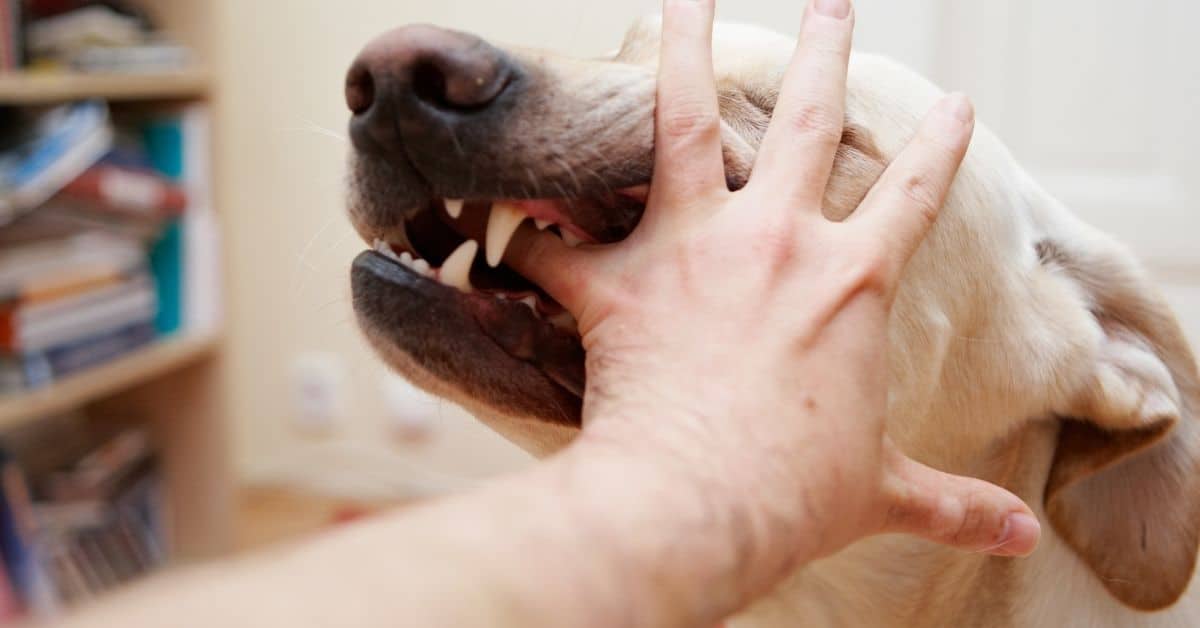Dogs use their mouths and tongues to explore the world since they lack fingers; however, dogs don’t always see nibbling behavior as affection, playing, and exploring.
Some dogs continue nibbling people their entire lives, even though many other dogs eventually learn that people don’t enjoy having their wrists chewed or their clothes pulled on.
Puppy bites are more frequent because puppies are more interested in their surroundings.
Additionally, pups experience a teething phase during which nibbling soothes their inflamed gums.
Although playful and gentle nibbling isn’t always harmful, it could result in undesired biting in older dogs, so you should probably prevent this tendency from an early age.
As you know now the answer to the question “why does my dog nibble on me”, let’s go deeper into the topic of nibbling in dogs, the reasons for it, and what you can do about it.
Detailed Reasons Dogs Nibble
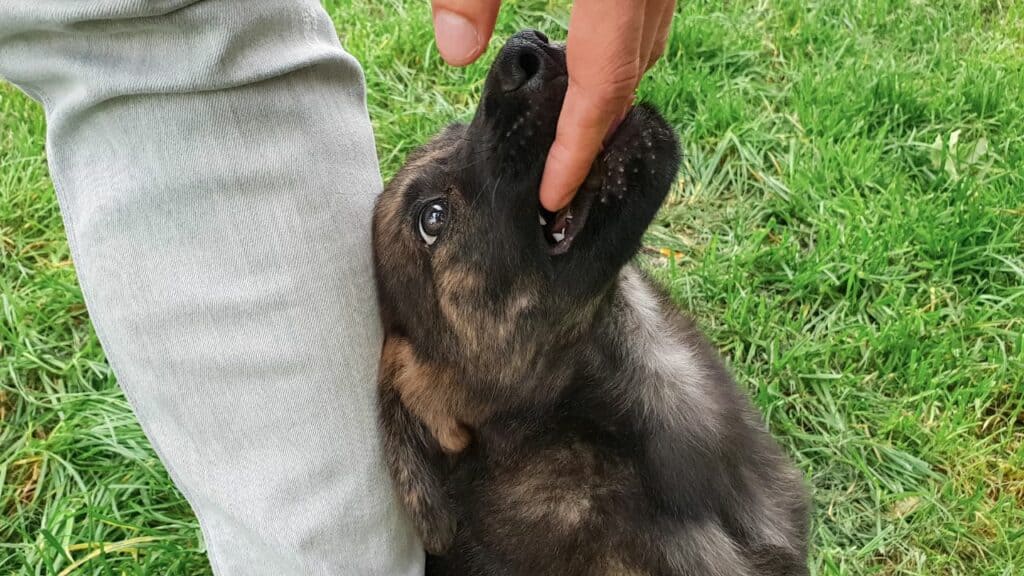
All dog owners want to know the reasons behind this; “why does my dog nibble on me?”
To play with them, explore their surroundings, and it’s likely to show you a bit of dog–mouthing behavior or to engage you in a game; most dogs commonly nibble on other dogs and people.
It’s probably dog-mouthing affection if your dog gently nibbles on you like corn on the cob.
Even though this isn’t usually a problem, you shouldn’t let it continue because if your dog gets too excited, those gentle nibbles could turn into bites.
Here are a few reasons in detail for dog nibbling:
It’s A Natural Behavior
The nipping, gnawing, nibbling, and biting behavior is paw-positively normal dog behavior if your beloved puppy is still only that—a puppy.
Nibbling is instinctive; nibbling or cobbing with the front teeth is good behavior for dogs, especially for puppies.
Puppies use their mouths to get acquainted with their environment and teething process.
Doing so will also help teach them to have impulse control.
The best time to receive the appropriate mouthing training is right now.
The method used to address the behavior directly will influence how your dog behaves in the future.
There is undeniably a correct and incorrect way to respond to this behavior.
To Get Attention
To grab your attention, your dog may lick or nibble at you.
Make some noise, and make sure they learn to stop nibbling.
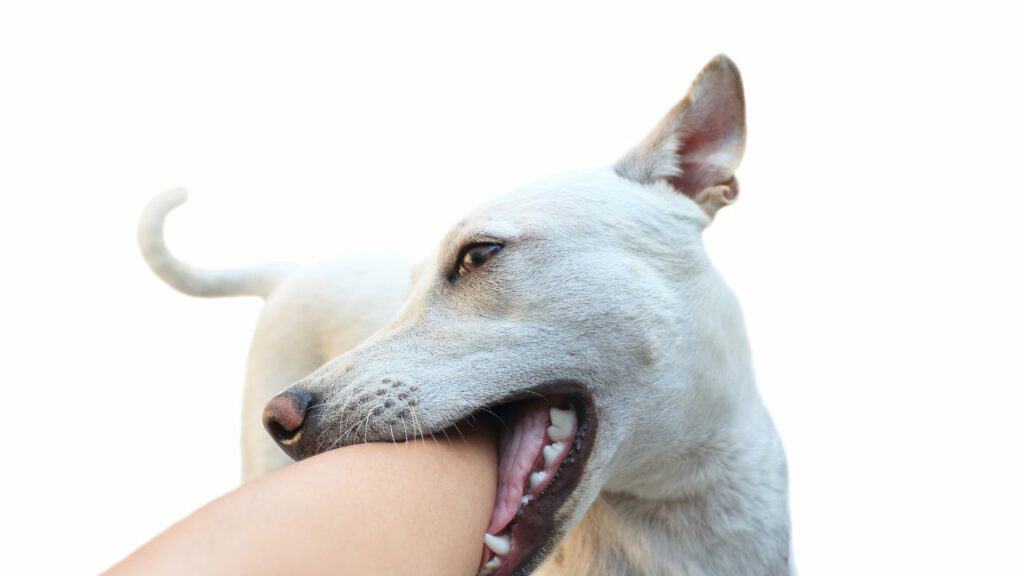
Dogs could try to eat your blanket or even you if you want attention.
If this occurs, it’s essential to convey that their treatment of you is unacceptable.
If your dog gets carried away while nibbling, make sure to rebuke their little nibbles with loud noises like “Ouch,” because dogs don’t have a great feel of what is okay and not okay when it comes to playing biting.
The purpose of the loud noise is to teach your dog that nibbling on you is unacceptable, even if it seems harsh.
As A Part Of The Game
Small dogs mouthing behaviors are much more prevalent than adult dogs mouthing behaviors.
Puppies play, investigate, and explore with their mouths in a dog park.
Dogs can learn how hard to play-bite without hurting each other by playful way of biting or nibbling at other animals.
Dogs bite can hurt if your dog is not exposed to much socialization when younger.
The best course of action is to forbid this kind of play outright.
Due To Discomfort
Nibbling, mainly if it’s a habit from when your dog was a puppy, can soothe, calm, and comfort your dog.
Nibbling can be compared to a cat kneading or a child sucking their thumb.
The act makes the dog think of when it was a baby and received comfort from its mother.
You are the new comfort base because you are the new mom in town.
Your Dog Is Anxious Or Stressed
Much like their human counterpart, some aggressive dogs are predisposed to exhibit nervous behaviors and anxiety to a greater extent than others.
Your dog may nip, nibble, or even suckle on your hands and fingers in a stressful situation.
You should always be aware of subtle changes in body language because an anxious dog might lash out inadvertently.
Other signs that your dog is anxious or stressed are if he is panting and restless.
If your dog suffers from separation anxiety, it may indicate relief and gratitude at your return by nibbling at you; pups with separation anxiety are the worst offenders.
Nibbling can be a stress release for dogs suffering from separation anxiety.
Poor Impulse Control
Self-control issues can be a significant contributor to biting and nibbling behavior.
Some dogs can’t help themselves and will nibble, gnaw, and bite.
They’ve never been taught how to stop the nibbling, which has unintentionally only made it worse.
Fortunately, learning impulse control at any age is possible, though it is more straightforward than learning a puppy.
Make a loud, high-pitched yelp the next time your dog nips you.
Yes, you’ll probably frighten the dog, but that’s okay.
That lets him know that he infringed upon your rights and caused you harm.
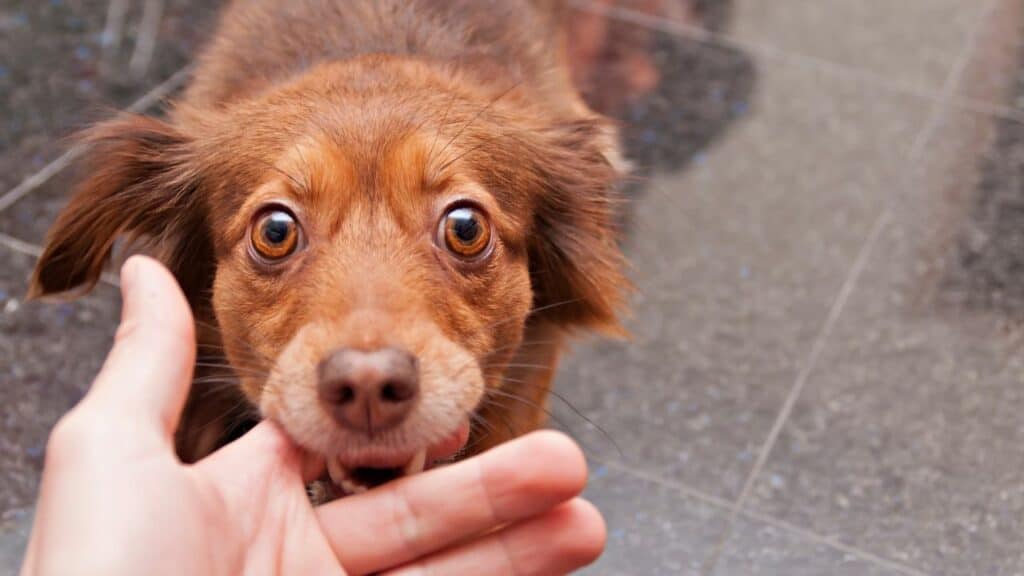
He will eventually wean off the behavior out of concern for you.
Likes The Way You Taste
No, your canine companion is not the reincarnation of Hannibal Lecter, and it’s doubtful that he intends to serve you with a glass of chianti and a helping of fava beans.
However, our skin tastes quite salty to them, and many dogs appear to enjoy the flavor of our saltiness.
If doggo nibbles or gnaws are interspersed with big, sloppy kisses, Fido might enjoy the taste of what you’re offering him.
He’s A Puppy
Nipping, gnawing, nibbling, and biting are all perfectly acceptable behaviors in a young dog, provided your precious pup is still in the puppy stage of development.
Puppies use their mouths to cut their baby front teeth and explore the world around them as part of the process of socialization known as “teething.”
They will also learn how to control their impulses if you do this for them.
The proper instruction in mouthing should begin as soon as possible because this is the best time for it.
Your current strategy for dealing with this behavior will go a long way toward determining how your dog will act in the years to come.
When it comes to dealing with this particular behavior, there is a correct approach as well as an incorrect one.
Teething Behaviors From Puppyhood
Anything with teeth will experience a “teething” phase at some point, so teething is not just a phenomenon experienced by infants.
Some dogs never revert to it, while others continue their biting habits into adulthood.
It might be able to reassure and calm them.
Warning: This may resemble the actions of a dog who has oral or dental issues.
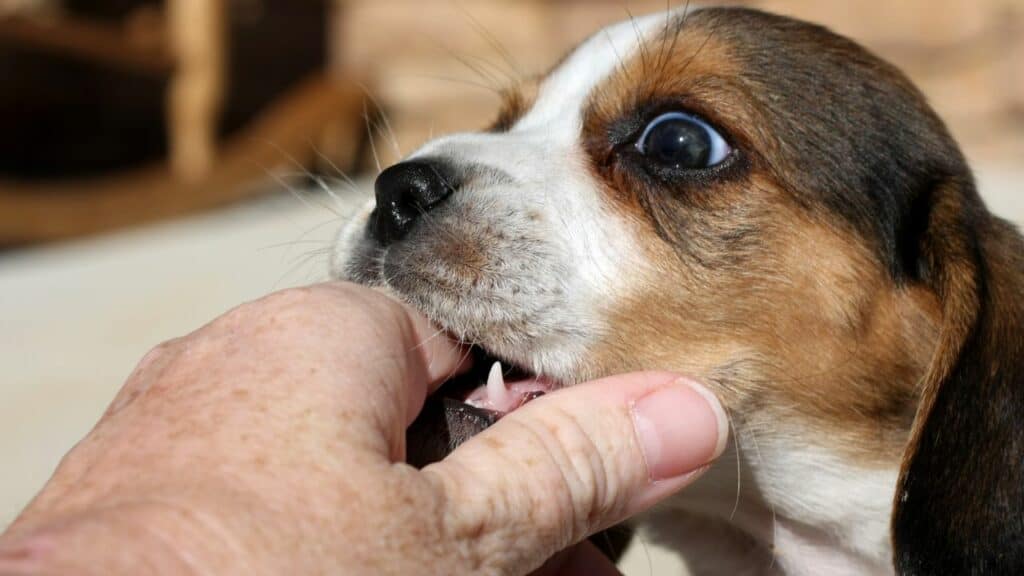
Oral Issues
No matter what species you are, having tooth pain is a miserable experience.
When a dog nibbles, gnaws, or mouths at you, it may very well be an indication that they have an oral health problem that needs to be addressed.
Cavities, gingivitis, and periodontal disease are all conditions that have the potential to irritate and discomfort the gums.
Your dog might become agitated due to this, trying to calm himself down by mouthing or nibbling on your hands or fingers.
Dental problems can fairly quickly escalate to severe levels.
You should consult with your veterinarian if you have any reason to believe that your pet may have an oral health problem.
Excitement
Do you know that Cocker Spaniels are notorious for tingling when they get overly excited?
It’s the same idea, but there is no urine involved this time.
Some dogs become so agitated and overexcited that they start biting the person or thing closest to them that they enjoy.
That could mean either you or his closest furry companion.
Fido’s excitement may be why he suddenly and unexpectedly bit someone or something nearby, like a hand or a furry bottom.
It Could Indicate Affection
Signs of affection are one of the most common reasons for mouthing and nibbling behaviors.
A common trait among our four-legged doggy friends is that they frequently use their mouths to communicate, and the message they are trying to convey here is one of affection.
This particular communication follows this pattern.
How To Stop A Dog From Nibbling?
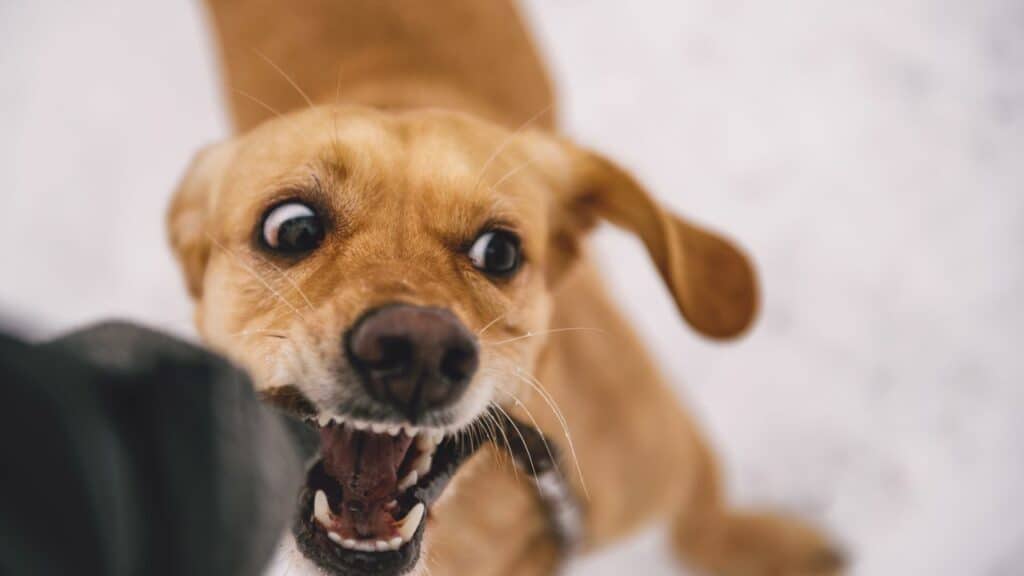
When it comes to putting an end to your dog’s habit of nibbling, you have quite a few options for you in terms of strategies.
You’ll need to remember the motivation behind the behavior, as that will largely determine your approach to dealing with it.
Provide Chew Toys To Nibble On
If your dog wants to nibble on something, it can be difficult to discourage this behavior.
Instead of attempting to prevent it, provide your dog with something they are permitted to chew, such as a dog-safe chew toy.
If they tend to nibble, you could offer them a blanket to nibble on.
Offer the toy or blanket as soon as they attempt to nibble on you; they should quickly understand its purpose.
Always supervise your dog while he plays with his chew toys and remove them if they become damaged.
If He Begins, Withdraw Your Attention
Stop whatever you’re doing with your dog if he starts to get mouthy while you’re playing with him.
Place him gently in his crate or in the area designated for time-outs.
Only when he’s in a relaxed state should you let him out.
Don’t Let Him Practice Bad Behavior
Your dog is dependent on you to instruct him in proper training.
You should keep him on a leash or bring him inside the house if he chases and mouths your children while they play.
Use a Gentle Leader if he starts to mouth your hand while you’re out walking.
Put an end to your walking and give him a regular pull-up on his Gentle Leader.
When he stops talking, you can let go of the tension.
Do Not Train Your Dog To Lick You
When you break your dog of the nibbling habit, don’t let him lick you instead.
This way, your dog will not learn that he should not do this in general.
Of course, there are situations in which a dog will show affection by licking (for example, when he licks your ears), but you should avoid it when breaking the nibbling habit.
Provide Plenty Of Exercise And Activities
Physical activity will not stop your dog from mouthing, but it will help burn off the excess energy that can exacerbate the problem.
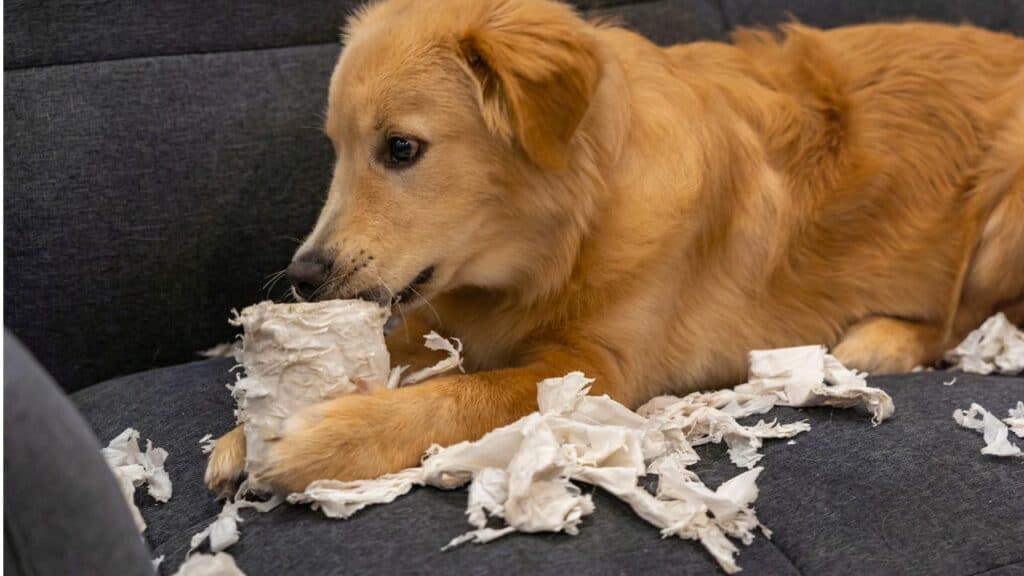
Dogs can benefit from long walks, games of fetch, and social interaction with other dogs.
Your dog shouldn’t go on runs or walks longer than a mile until it’s a year old.
Because his bones’ growth plates are still maturing, strenuous exercise could lead to swollen joints and even stunted development.
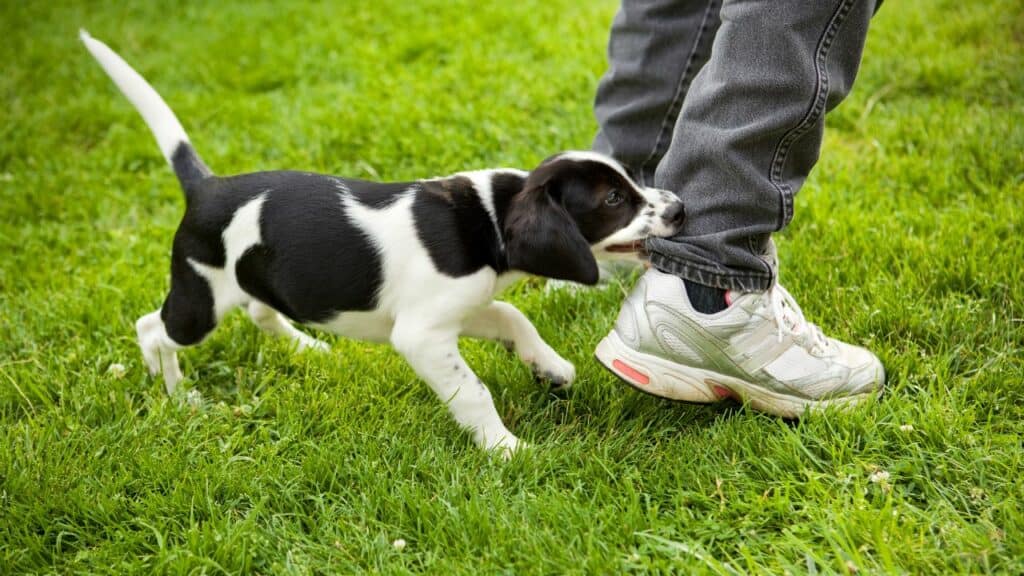
Continue To Teach Appropriate Behavior
Some dogs will use their mouths because they have discovered that doing so causes their owners to react in a certain way.
Your dog will be provided with “legal” activities to engage in if he is taught and heavily rewarded for appropriate behavior.
These activities will earn him attention for the right reasons.
Before You Go…
Now you know the answer to the question, “Why does my dog nibble on me?”.
If you want to learn more, read the following articles too!
Or watch this video:

